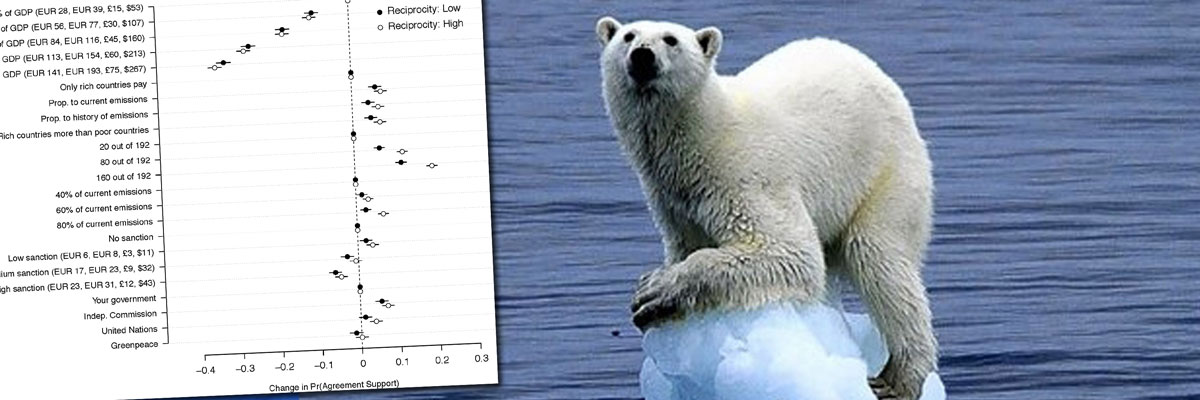Michael Bechtel is Professor of Political Economy, Chair of the Department of Political Science, and senior researcher in the cluster of excellence ECONtribute: Markets and Public Policy at the University of Cologne. His research explores how countries can address global economic and environmental sustainability problems. Current projects analyze mass support for international climate cooperation, the politics of natural disasters, and policy responses to economic crises. Bechtel’s articles have appeared in journals such as American Journal of Political Science, American Political Science Review, Journal of Politics, International Organization, Nature Climate Change, Nature Communications, and Proceedings of the National Academy of Sciences. His research has been featured in media outlets in the United States and Europe and in animated movies. Bechtel has provided testimony in legal proceedings that require expertise in social science research including survey design, conjoint analysis and experiments, and statistical estimation. Before becoming a first-generation college student, he served as an infantry soldier and reserve officer in the German Army where his deployments included the 2002 Elbe flood disaster response.

Follow on Twitter • Instagram • 8a.nu
Multilateral Climate Policy
International participation and stable cost paths increase public support for climate action:
- “Improving Public Support for Climate Action Through Multilateralism” with Kenneth F. Scheve and Elisabeth van Lieshout, in: Nature Communications (2022) 13: 6441.
- “Constant Carbon Pricing Increases Support for Climate Action Compared to Ramping Up Costs Over Time” with Kenneth F. Scheve and Elisabeth van Lieshout, in: Nature Climate Change (2020) 10 (11): 1004-1009.
Social Norms in Mass Surveys
We provide survey instruments to elicit social norms and attitudes toward time and risk in mass surveys:
- Reciprocity instrument (Bechtel/Scheve 2017 JEPS, Bechtel/Scheve 2013 PNAS, and Bechtel et al. 2018 BJPS)
- Altruism instrument (Bechtel/Scheve 2017 JEPS, Bechtel et al. 2014 AJPS)
- Time and Risk Preferences (coming soon) containing the Convex Time Budgets (CTB), staircase, and stated preference instrument (Bechtel et al. 2024 PSRM)
Designing Institutions and Public Policy
We have applied and refined conjoint experiments to explore institutional and policy design questions:
- Divide-the-dollar conjoint to analyze preferences over redistribution under budget constraints: Bechtel/Mannino 2020 PSRM
- Global climate cooperation: Bechtel/Scheve 2013 PNAS, Bechtel et al. 2018 BJPS, Bechtel at al. 2020 NCC
- Economic crises: Bechtel et al. 2014 AJPS, Bechtel et al. 2017 EJPR, Bansak et al. 2021 APSR
- Predicting levels of policy demand and willingness-to-pay estimates: Bechtel/Scheve 2013 PNAS, Bechtel et al. 2018 BJPS, Bansak et al. 2021 APSR
- Conjoint analyses and fundamental vs. contingent attitudes: Bechtel et al. 2018 EJPR
